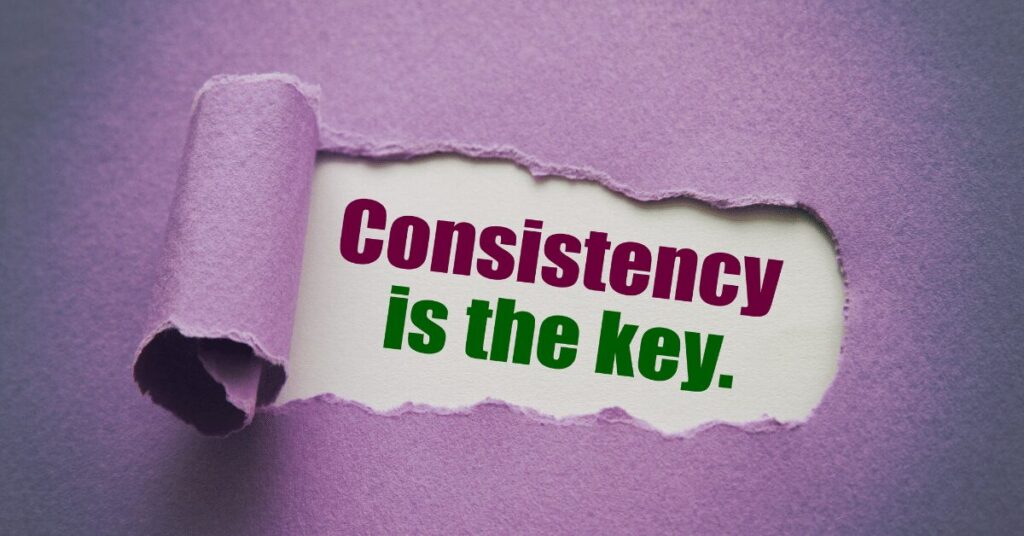Time is one of our most precious resources. In today’s fast-paced world, the demands on our time are increasing each day. Finding enough hours in the day between work, family, social commitments, and personal interests can feel impossible. This constant struggle to “do it all” often leaves us feeling overwhelmed, stressed, and always playing catch-up.
The solution?-Mastering the art of time management. When you take control of your time, you take control of your life. Implementing effective time management strategies allows you to work smarter, not harder, and achieve more in less time. The benefits include less stress, increased productivity and opportunities, and greater work-life balance.
This comprehensive guide provides practical techniques to transform how you manage time. Here, you’ll learn how to:
- Set goals and priorities to focus your efforts
- Overcome procrastination by boosting motivation
- Create efficient schedules and routines
- Master the art of focus and avoid distractions
- Utilize tools and technology to increase productivity
- Perfect the delicate art of delegation and saying “no”
- Maintain progress through tracking, evaluating, and adapting
Follow this guide, and you’ll establish habits and systems that enable you to maximize each moment. Time management is a continuous self-care journey of self-improvement, not a single achievement. Commit to mastering these strategies, and you’ll be empowered to pursue your most meaningful goals and live a purposeful, balanced life. The power is yours – it’s time to take control.
Table of Contents
Set Clear Goals and Priorities

The foundation of effective time management is identifying your short and long-term goals. When you know what you want to achieve, you can align tasks and activities directly with these objectives. Goal-setting directs your days and ensures you stay focused on your priorities.
First, reflect on what matters most. Ask yourself:
- What contribution do I want to make at work or in my community?
- What knowledge or skills do I want to develop this year?
- What relationships or causes are most important to strengthen?
- What personal passions do I want to pursue?
When drafting your goals, follow the SMART framework:
- Specific – You want to define what you want to accomplish clearly.
- Measurable – Include quantifiable targets to track progress.
- Achievable – Set realistic goals you can accomplish with effort.
- Relevant – Ensure each goal aligns with your priorities.
- Time-bound – Set a deadline to create urgency.
Next, break larger goals into action steps spread over time. For example:

Goal: Publish my first book within a year.
Action Steps:
- Outline draft chapters by April 30th
- Complete the first draft by July 31st
- Edit chapters and finalize by October 31st
- Research publishers and submit manuscript by December 15th
To further prioritize, rank your goals by importance. Schedule time every week to work on top-priority goals. Let this hierarchy guide your decision-making – when faced with competing tasks, choose whichever contributes most to your high-priority goals.
By defining inspiring but achievable goals and regularly evaluating progress, you focus time on what matters most.
Overcome Procrastination by Boosting Motivation

Procrastination is one of the biggest threats to effective time management. When important projects linger on our to-do list for weeks, we lose valuable time that cannot be recovered.
Procrastination often stems from a need for more motivation. When tasks seem uninteresting or overwhelming, putting them off temporarily reduces stress – but causes far greater anxiety as deadlines approach.
Tackle procrastination by cultivating motivation:

- Connect to purpose: Remind yourself how this task connects to your deeper goals. View it as a step on the path to purposeful achievement.
- Break it down: Make large projects manageable by dividing them into smaller tasks. Completing each small step builds momentum.
- List benefits: Write down all the short and long-term benefits of completing this task.; This highlights positive outcomes.
- Set time limits: Give yourself defined periods to make measurable progress. For example, commit to a 25-minute Pomodoro session focused on this task.
- Reward yourself: Arrange small rewards for task completion. Indulge in an episode of your favorite show after an hour of work. (My personal favorite.)
- List consequences: Consider the consequences of not completing the task. How would delaying negatively impact you? Visualize these outcomes to fuel urgency.
- Accountability buddy: Sharing your goals and deadlines with a friend is helpful. Have them check on your progress and cheer you towards milestones.
- Recall past wins: Remind yourself of tasks you found challenging but eventually completed. Draw on this to boost your self-efficacy.
Implementing even one of these motivation boosters can be the spark needed to overcome procrastination. Be patient yet persistent with yourself. Small acts of progress compound over time into extraordinary results.
Create Efficient Schedules and Routines

With clear goals set, the next step is creating structured schedules that maximize time. Thoughtfully planned days remove the guesswork of what to work on next. Scheduling also consolidates tasks that utilize similar skills, ensuring you get into a flow state.
Here are some best practices for crafting effective schedules:
- Time audit: Track how you spend time for a week; this highlights wasted time and areas for improvement.
- Block time: Segment your day into blocks for broad categories: creative work, strategic thinking, communication, etc. Assign tasks to relevant blocks.
- Sequence strategically: Order blocks to match your energy levels. Schedule analytical work during peak energy morning hours and administrative tasks for later.
- Layer goals: Within each block, align tasks directly to your goals and priorities; this creates purposeful schedules.
- Leave buffers: Allow 5-10 minutes between blocks for transitions; this prevents a frenzied atmosphere.
Similarly, establish consistent morning and evening routines that prime you for productivity. For example:

Morning Routine:
- Wake up at 6 AM
- Exercise for 30 minutes
- Meditate for 10 minutes
- Review goals and schedule
- Targeted task work until 9 AM
Evening Routine:
- Stop work by 6 PM
- Prepare a healthy dinner
- Spend quality time with family
- Reflect on the day’s accomplishments
- Light reading before bedtime
Routines eliminate decision fatigue by standardizing activities. You conserve mental energy for deep work time. Evaluate routines frequently and adjust activities as needed.
Master the Art of Focus and Avoid Distractions

With schedules set, the next time management challenge is sticking to the plan. Thanks to constant digital disruptions, our attention spans are under siege like never before. Mastering the art of focus despite distractions will enable you to immerse in meaningful work.
Here are some techniques to build your concentration skills:
- Monotask: Focus on one activity at a time. Multitasking hampers mental performance by forcing constant refocusing. Give your full attention to each scheduled block.
- Eliminate triggers: Identify your distractions, whether email notifications or social media, and remove access during workblocks. Log out of distracting programs so they’re not a click away.
- Use time limits: Block distractions for set periods, gradually increasing the limits. For example, schedule 30 Facebook-free days.
- Minimize clutter: Both physical and digital clutter compete for attention. Maintain a clean workspace and desktop to eliminate non-essential stimuli.
- Change environments: If your current workspace has ingrained distraction associations, get creative and experiment with new spots that energize your focus.
- Take breaks: Build in regular short breaks to recharge concentration, such as a quick walk outside or listening to an energizing playlist.
Distraction is the default; focused attention is a skill we must actively cultivate through practice. Be patient with yourself – building concentration takes time. But the effort enables performance previously thought impossible.
Utilize Tools and Technology to Increase Productivity

While technology contributes hugely to distractions, it also offers solutions. Various apps and tools exist to help organize your time and tasks. Integrate the ones that best match your style.
Here are some categories of tools to consider:
- Task management: Apps like Todoist, Asana, and Trello help you organize to-do lists, assign deadlines, set reminders, and more. Prioritize and schedule tasks efficiently.
- Calendar: Tools like Google Calendar, Cozi, and TimeTree provide a centralized place to keep track of schedules, appointments, and reminders. Sync across devices.
- Time blocking: Focusmate, Focus Booster, and Forest offer timed, distraction-free sessions to dive deep into work. Enforce blocks of focused concentration.
- Time tracking: RescueTime, Toggl, and Hours track where your time goes daily. Expose wasted time and optimize based on data.
- Note-taking/Organization: Evernote, OneNote, and Milanote provide a digital organization system for notes, documents, and creative work. Reduce clutter.
Explore various options to enhance your workflow rather than introduce unnecessary complexity. Re-evaluate your toolkit periodically to prune ineffective tools and learn new ones.
Perfect the Delicate Art of Delegation and Saying “No”

A time management system can only be fully effective with mastering delegation. Priorities will fail if you take on every task personally. Learning to delegate and say “no strategically” prevents overload. Suppose you are working on a class assignment, work project, or personal team task. In that case, observing and strategizing your time management is also necessary.
Follow these guidelines to delegate successfully:
- Know your limits: Be honest about your time. Take note of current commitments before agreeing to additional requests.
- Delegate strategically: Assign tasks that utilize others’ strengths, freeing you to focus on high-level goals.
- Provide context: Explain why a task is important and how it fits into the big-picture vision. Inspire strong performance.
- Set expectations: Provide clear guidelines on requirements but give autonomy over the process to encourage ownership.
- Offer support: Check in regularly on progress and roadblocks. Offer resources and guidance to set them up for success.
- Show appreciation: Recognize their contributions publicly. People are motivated when their work is valued.
- Respectfully Decline: Saying “no” with grace is also essential. When asked to take on tasks that don’t advance your priorities, reply:
- “I’m unable to take this on due to other commitments, but I appreciate you thinking of me.”
- “My time is maxed out currently, but feel free to check back with me in [timeframe].”
Avoid over-explaining every refusal. Be sincere but to the point in protecting your time. Delegation and refusal powers allow you to focus time where you add the most value.
Maintain Progress Through Tracking, Evaluating and Adapting

The most carefully designed time management system needs vigilant maintenance to maintain effectiveness. You should regularly assess how well your strategies are working through tracking, evaluating, and adapting.
- Track time: Keep a daily log of how long tasks take. Compare against schedules to identify time drains.
- Track progress: Monitor achievement of goals. If milestones are consistently missed, recalibrate goals or improve strategies.
- Gather feedback: Ask colleagues or family members for input on your effectiveness. Different perspectives spark realizations.
- Review systems: Every few months, honestly assess which tools and practices boost productivity and which feel outdated or cumbersome.
- Experiment and adjust: Don’t settle for the status quo. Trying new approaches keeps systems optimized for your evolving needs.
- Celebrate successes: Take time to recognize progress made, both big and small; this motivates you to keep improving.
Regular upkeep prevents skill decay and spotlights areas needing refinement. View occasional breakdowns as opportunities for breakthroughs in your time management abilities.
The Big Picture – Time Management

Mastering time management is a lifelong endeavor that cultivates extraordinary results. Follow the strategies in this guide – from identifying goals to eliminating distractions to maintenance through tracking – and you will gain control over your days. No longer will time manage you.
The journey requires persistence through setbacks, flexibility to find personalized solutions, and creativity to try novel approaches. But living purposefully and productively is worth the effort.
Align activities to what matters most. Schedule strategically to maximize energy. Eliminate time drains through ruthless focus. And regularly refine your system.
Embrace the exciting challenge of utilizing time in a way that propels your goals and priorities. You now hold the key needed to unlock the potential of each day. Your future is yours to create, moment by valuable moment.
Live Your Life & Love It!! – Joyce
Related Article: Focus and Presence: Elevate Productivity and Well-Being
FAQs
-
How do you learn the art of time management?
You will develop the art of time management by setting clear goals, planning efficient schedules, minimizing distractions, using productivity tools, delegating tasks, and tracking your progress over time. It’s an ongoing process of self-improvement.
-
How do you become a time management master?
By implementing research-backed time management strategies like identifying your priorities, creating routines, limiting distractions, using technology to optimize your workflow, saying “no” to non-essentials, and continuously refining your approach, with time and consistency, you can master time management.
-
How can I improve my time management skills?
Ways to improve include:
-Doing a time audit.
-Scheduling blocks for categories of work.
-Creating consistent morning and evening routines.
-Monotasking.
-Decluttering your workspace.
-Taking breaks to recharge focus.
-Tracking how you spend your time. -
What is the best way to study time management?
The best way is to read expert-written books and articles, take courses, attend seminars, learn from mentors skilled in time management, experiment to find which strategies work for you, get feedback from others, and commit to improving each day.
-
What are the effective ways to master the art of time management?
Effective ways include setting SMART goals, scheduling strategically, overcoming procrastination by boosting motivation, eliminating digital distractions, using apps and tools to optimize productivity, delegating and saying “no” to non-priorities, and constantly evaluating and tweaking your systems.
-
What is the importance of always being on time?
Being punctual shows respect for others, displays professionalism and reliability, allows you to utilize time fully, reduces stress from rushing, enables coordination with team members, and contributes to career success and personal growth. It’s a keystone habit.









